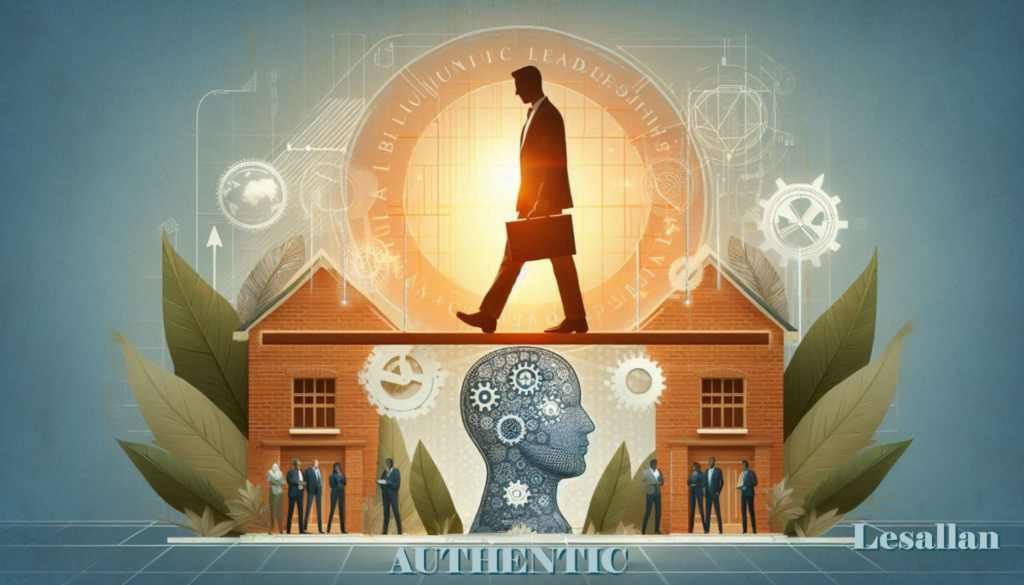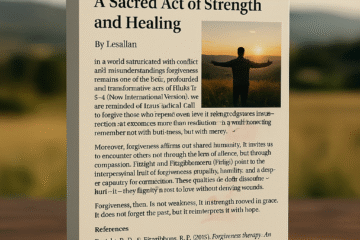Written and Published by Lesallan | February 16, 2025

Building Authentic Leadership: The Balance Between Strategic Planning and Legacy
Written and Published by Lesallan | February 16, 2025
In my current discussion about legacy and leadership, I want to emphasize the true meaning of being an authentic leader. While some people examine the importance of strategic planning as a key element for success, I believe that legacy building is equally, if not more, significant.
Legacy building is about the lasting impact a leader has on both future generations and the overall culture of an organization. An authentic leader not only focuses on immediate goals and strategies but also considers how their actions and decisions will shape the environment for those who come after them. This perspective encourages leaders to think beyond their time in a position and to recognize their role in fostering values, principles, and a vision that will influence the organization long after they have left. “For I know the thoughts that I think toward you, saith the Lord, thoughts of peace, and not of evil, to give you an expected end” (Jeremiah 29:11, KJV). This perspective encourages leaders to think beyond their time in a position and to recognize their role in fostering values, principles, and a vision that will influence the organization long after they have left.
In this way, a leader can inspire and mentor others, creating a strong foundation for the organization’s future. The legacy they build can guide future leaders and employees, helping to maintain a positive and productive work culture. This leads to a profound sense of responsibility and purpose that defines authentic leadership. “Commit thy works unto the Lord, and thy thoughts shall be established” (Proverbs 16:3, KJV).
The idea of leadership legacy is beautifully summed up in the statement: “A legacy consists of the leader’s beliefs, ideas, and acts that affect the future generations of the institution’s workforce and contributes to the culture of the organization and ultimately, the world” (Goleman, 1995). This concept strongly connects with the wisdom found in Proverbs 11:14 (KJV): “Where no counsel is, the people fall: but in the multitude of counsellors there is safety.” This verse highlights the importance of mentoring and guiding future leaders to create an environment where success and stability can thrive over time. “Train up a child in the way he should go: and when he is old, he will not depart from it” (Proverbs 22:6, KJV).
In today’s fast-paced world, modern leaders face the challenge of balancing the immediate demands of strategic planning with the long-term vision necessary for creating a meaningful legacy. One effective approach is to integrate short-term goals with a broader outlook. Leaders can begin by ensuring that their strategic plans align with their core values and vision for the future. This means making decisions that not only address current issues but also keep in mind how those decisions will shape the organization and its culture in the years to come.
Furthermore, it is crucial for leaders to foster a culture of collaboration and open communication. By encouraging diverse perspectives and engaging their teams in the decision-making process, leaders can create a shared sense of ownership. This not only helps in addressing immediate challenges but also prepares future leaders to take on their roles with confidence and clarity.
Investing in the development of future leaders is another key element in balancing immediate demands with long-term vision. Leaders should prioritize mentoring and training programs that equip their team members with the skills and knowledge needed for growth. This not only benefits the organization in the present but also ensures that there is a pipeline of capable leaders ready to step up in the future. “The thoughts of the diligent tend only to plenteousness; but of every one that is hasty only to want” (Proverbs 21:5, KJV).
Ultimately, modern leaders can successfully navigate the dual pressures of short-term results and long-term legacy by remaining committed to their values, fostering a supportive culture, and investing in future leadership. Through this integrated approach, they will not only achieve immediate success but will also leave a lasting impact on their organization and the world at large.
Blessings,
Lesallan
References:
Goleman, D. (1995). Emotional intelligence: Why it can matter more than IQ. Bantam Books.
The Holy Bible, King James Version. (2024). Retrieved from


